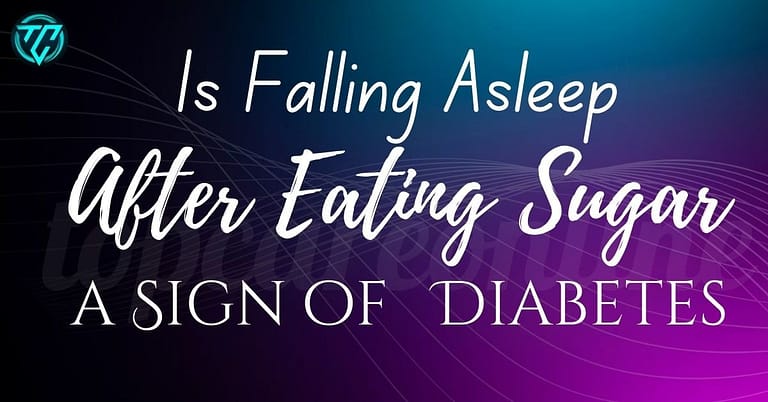Is falling asleep after eating sugar a sign of diabetes?
This question has likely crossed the minds of many, especially after indulging in a sugary treat and feeling a sudden wave of fatigue. If you’ve ever experienced that post-sugar slump, you’re not alone! It’s a familiar scenario for many sweet-toothed snackers, but what does it really mean for your health?
Understanding the Body’s Response to Sugar
When you consume sugar, your body processes it through a series of metabolic reactions. Here’s a simplified overview:
- Digestion and Absorption: Sugar is quickly digested and absorbed into the bloodstream, causing a spike in blood glucose levels.
- Insulin Release: In response to rising glucose levels, the pancreas releases insulin, a hormone that helps cells absorb sugar for energy.
- Energy Crash: After the initial spike, insulin can sometimes cause blood sugar levels to drop rapidly, leading to feelings of fatigue or drowsiness.
This cycle of energy spikes and crashes can lead to what many describe as a “sugar crash.” But does this mean that falling asleep after eating sugar is indicative of diabetes? Let’s delve deeper.
The Connection Between Sugar, Energy Levels, and Diabetes
What is Diabetes?
Diabetes is a chronic condition characterized by elevated blood sugar levels due to the body’s inability to produce or effectively use insulin. There are two main types of diabetes:
- Type 1 Diabetes: An autoimmune condition where the pancreas produces little to no insulin.
- Type 2 Diabetes: A condition often associated with lifestyle factors where the body becomes resistant to insulin.
Signs and Symptoms of Diabetes
While falling asleep after consuming sugar can be a common reaction for many, it’s essential to recognize other symptoms that might indicate diabetes, including:
- Increased thirst and hunger
- Frequent urination
- Fatigue
- Blurred vision
- Slow-healing sores or frequent infections
If you experience these symptoms in conjunction with drowsiness after sugar intake, it may be worth consulting a healthcare professional.
How Sugar Affects Diabetic Individuals
For individuals with diabetes, the effects of sugar are more pronounced. Consuming sugary foods can lead to a rapid increase in blood sugar levels, followed by a severe crash, which can cause extreme fatigue. This reaction is particularly concerning for those with diabetes, as managing blood sugar levels is crucial for overall health.
Is Falling Asleep After Eating Sugar a Sign of Diabetes?
The short answer is: not necessarily. Falling asleep after consuming sugar can happen to anyone and is often linked to blood sugar fluctuations. However, if you frequently experience this symptom alongside other warning signs of diabetes, it’s important to take notice.
Factors Influencing Drowsiness After Sugar
- Amount of Sugar Consumed: Larger quantities can lead to more significant spikes and drops in blood sugar.
- Type of Sugar: Refined sugars (like those in candy) can affect your body differently than natural sugars (like those found in fruits).
- Individual Differences: Each person’s metabolism and insulin sensitivity can influence how they respond to sugar.
Taking Charge of Your Health
Recognizing the relationship between sugar consumption and your body’s response is crucial. Here are some actionable steps you can take:
- Monitor Your Diet: Keep track of your sugar intake and how it affects your energy levels. Consider maintaining a food diary.
- Balance Your Meals: Incorporate proteins and healthy fats with carbohydrates to slow down sugar absorption and stabilize energy levels.
- Consult a Healthcare Professional: If you experience persistent fatigue or other symptoms of diabetes, seek medical advice for proper evaluation and guidance.
Your health journey is important, and taking proactive steps can lead to a more vibrant, energetic life. Stay informed, stay healthy!

